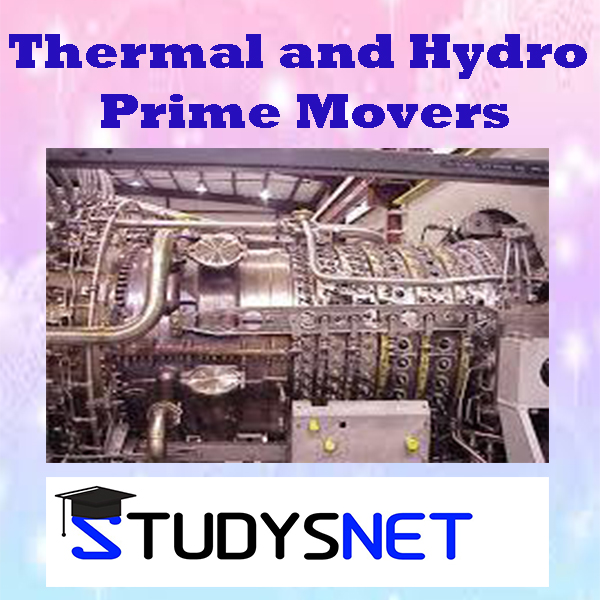Thermal and Hydro Prime Movers free videos and free material uploaded by Ramanjaneyulu K .
Course Objectives:
To make the student understand the types of prime movers, which can be connected to generators for power production and should obtain the skills of performing the necessary calculations with respect to the functioning of the prime movers.
UNIT I:
Objectives: To make the student learn about the constructional features, operational details of various types of internal combustion engines through the details of several engine systems and the basic air standard cycles, that govern the engines. Further, the student shall be able to calculate the performance of different types of internal combustion engines.
I.C Engines: Classification, working principles – valve and port timing diagrams – air standard cycles – Engine systems line fuel injection, carburetion, ignition, cooling and lubrication – Engine performance evaluation.
UNIT II:
Objectives: To train the student in the aspects of steam formation and its utilities through the standard steam data tables and charts. To make the student correlate between the air standard cycles and the actual cycles that govern the steam turbines. To train the student to calculate the performance of steam turbines using velocity diagrams. Properties of Steam and use of Steam Tables- T-S and H-S Diagrams. Analysis of Various Thermodynamic Processes under gone by Steam. Vapor Power Cycles: Carnot Cycle-Rankine Cycle- Thermodynamic Variables Effecting Efficiency and output of Rankine Cycle-. Analysis of simple Rankine Cycle and Re-heat cycle Steam Turbines: Schematic layout of steam power plant Classification of Steam Turbines- Impulse Turbine and Reaction Turbine- Compounding in Turbines- Velocity Diagrams for simple Impulse and Reaction Turbines- Work done & efficiency
UNIT III:
Objectives: To impart the knowledge of gas turbine fundamentals, the governing cycles and the methods to improve the efficiency of gas turbines. Gas Turbines: Simple gas turbine plant-ideal cycle, closed cycle -open cycle-. Efficiency, Work ratio and optimum pressure ratio for simple gas turbine cycle. Actual cycle, analysis of simple cycles & cycles with inter cooling, reheating and Regeneration, Part-B: Hydro prime movers
UNIT IV:
Objectives: To teach the student about the fundamental of fluid dynamic equations and its applications fluid jets. To impart the knowledge of various types of pumps, their constructional features, working and performance. IMPACT OF JETS AND PUMPS: Impulse momentum equation, Impact of Jet on stationary and moving vanes (flat and curved). Pumps: Types of pumps, Centrifugal pumps: Main components, Working principle, Multi stage pumps, Performance and characteristic curves
UNIT V:
Objectives: To make the student learn about the constructional features, operational details of various types of hydraulic turbines. Further, the student shall be able to calculate the performance of hydraulic turbines. HYDRAULIC TURBINES: Classification of turbines; Working principle, Efficiency calculation and Design principles for Pelton Wheel, Francis and for Kaplan turbines; Governing of turbines; Performance and characteristic curves.
UNIT VI:
Objectives: To train the student in the areas of types of hydro electric power plants, estimation and calculation of different loads by considering various factors. HYDRO POWER: Components of Hydro electric power plant: pumped storage systems, Estimation of water power potential; Estimation of load on turbines: load curve, load factor, capacity factor, utilization factor, diversity factor, load – duration curve, firm power, secondary power, prediction of load.
- Thermal and Hydro Prime Movers lecture notes unit-1
- Thermal and Hydro Prime Movers lecture notes unit-2
- Thermal and Hydro Prime Movers lecture notes unit-3

- 0 Reviews
- 23 Students
- 73 Courses

Write a public review